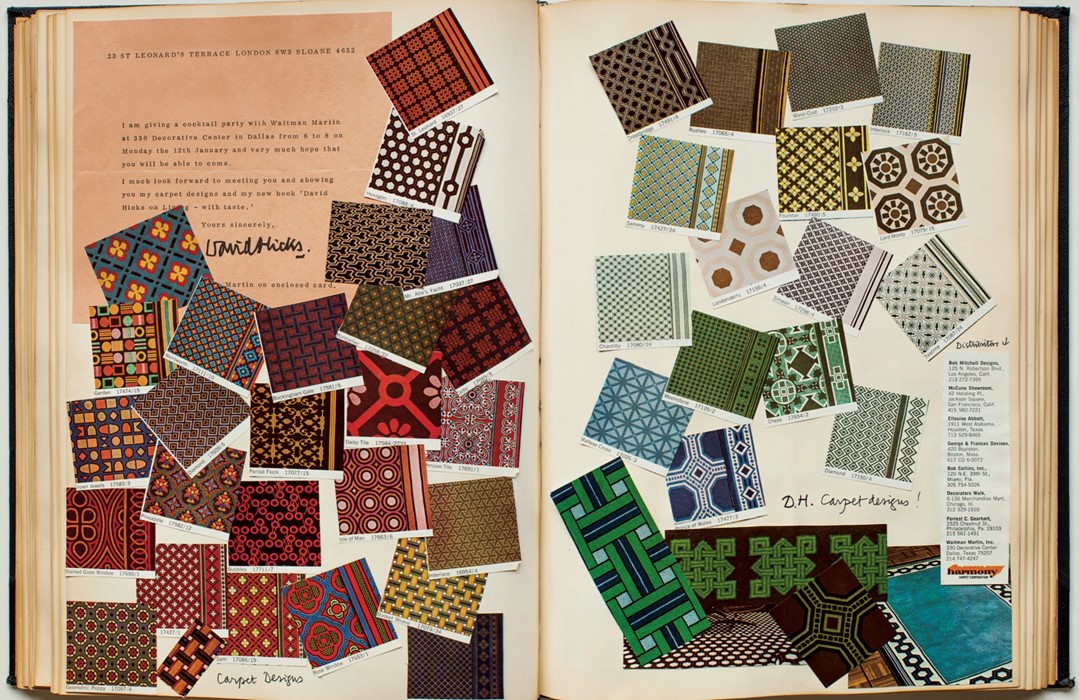Ashley Hicks has edited the extraordinary scrapbooks of his late father into a collectable quartet of volumes, launching next week at IDEA. Here, he discusses the project with Aimee Farrell
The legacy of influential decorator David Hicks has always loomed large in the life of his son, Ashley. He’s written celebrated books about his father’s epic career, he designs an interiors collection in homage to his bold geometrics – and now, he’s edited the beloved scrapbooks of press cuttings and memorabilia that were so diligently maintained up until his death in 1998. “I’m not very good at keeping resolutions,” says Hicks by phone from his country home in Oxfordshire. “After vowing to do nothing more about my father I found myself locked in the studio editing his scrapbooks all summer. A dutiful son.” The resulting quartet of volumes, published by IDEA in a limited edition of 250, is an enticing visual record of a life in design, played out in the upper echelons of swinging London. There are press clippings on his grand marriage to Lady Pamela Mountbatten, invitations to The White House and notes from Grace Kelly. But best of all, it’s all set against the vivid backdrop of his seminal living spaces. As Hicks himself summates: “The scrapbooks were his monument. They were his life.”
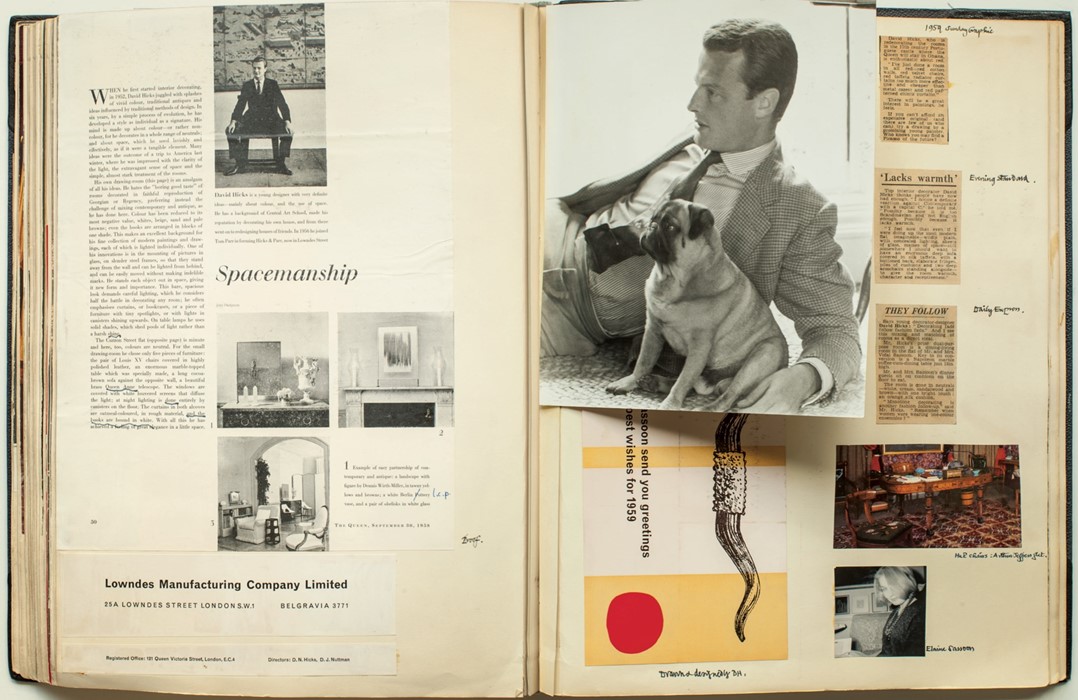
Aimee Farrell: How did the Scrapbooks project first come about?
Ashley Hicks: Basically, I became friends with IDEA who are constantly posting on Instagram about my father’s interiors books from the 1960s and 1970s – On Decoration and On Living – With Taste. They’re huge fans of his work and are extremely hyperbolic about him, calling him ‘the master of style’, which I found slightly scary to begin with, but then actually quite intriguing. They have an office in Soho close to my flat, so we wandered over and met them and decided to publish something together.
What was the biggest challenge of the Scrapbook project?
One of the problems is that there are 25 volumes. They live in a fireproof room next to the loo in my mother's [Lady Pamela Hicks] house in Oxfordshire. They are cumbersome, heavy things that are falling to bits. Even looking at them has become awkward. I’ve always wanted to make a more accessible version of them for the family, and myself. That was the incentive – plus, I wanted to share them in a limited way.
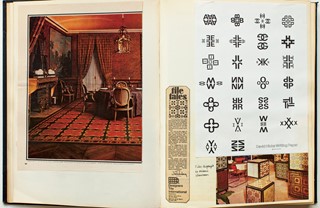
What do they mean to you?
When I was a child I used to go through them religiously, especially when my father was there. They are so beautifully laid out; he was keener on his press coverage than anything else. He’d certainly have loved them to be published.
Was it a real pleasure to do?
It was a labour of love. There was a huge amount of work because I photographed the entire 3,000 pages and colour corrected everything myself. I’m a bit of a perfectionist, and the colour was all wrong on a lot of the images printed in the mid-1960s – it looks better now than it ever did.
How did the editing process work?
Many of the original books don’t contain much of interest, and some of it’s fairly repetitive. He stuck everything in there – but I’ve focused mostly on the more personal pages, so it’s really just the best of his scrapbooks.
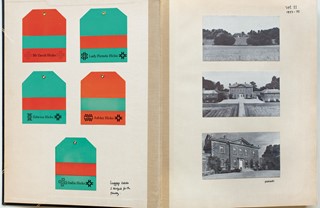
How long did it take you to put together?
It took about six weeks – a few days photographing, and a long time editing and colour correcting. My wife [Kata Hicks] got rather sick of it in the end.
What do the scrapbooks offer that his other design books don’t?
It’s the most complete record of his life and work through his own eyes and his own hands. You see the whole scrapbook page just as he intended it. I haven’t interfered at all. There’s a fantastic cutting from the Financial Times about his business manager who was terribly crooked, it later turned out. His face, and every mention of his name, has been Tippexed out by my father. I love the fact that he kept the clipping, but carefully deleted him out. It’s so funny. He was a true eccentric.
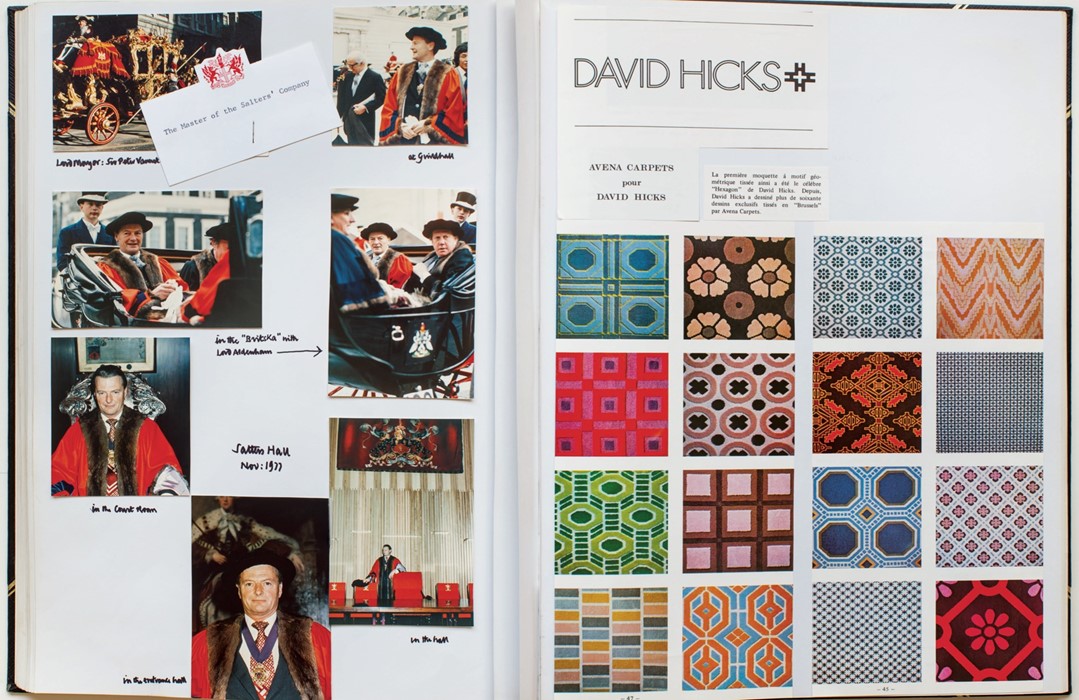
Have we lost the art of scrapbooking?
I think Instagram is our version of scrapbooking now. When we were children we were helped to make our scrapbooks by our father. I stopped doing mine in 1998 when he died. But there’s always been lots of press about him that’s been piling up on my desk – 18 years worth. So I finally spent a couple of days finishing off his last scrapbook, volume 25. I showed my mother who I thought would be delighted but she took no interest.
What do you think is your father’s greatest achievement?
Being recognised now as the leading interior designer of his generation. It’s not that he was the best or absolutely unique, but new generations have grown up looking at his books, so his work is very accessible. I’ll get a hard-lined minimalist and a completely baroque designer both saying, ‘David Hicks is my god’.
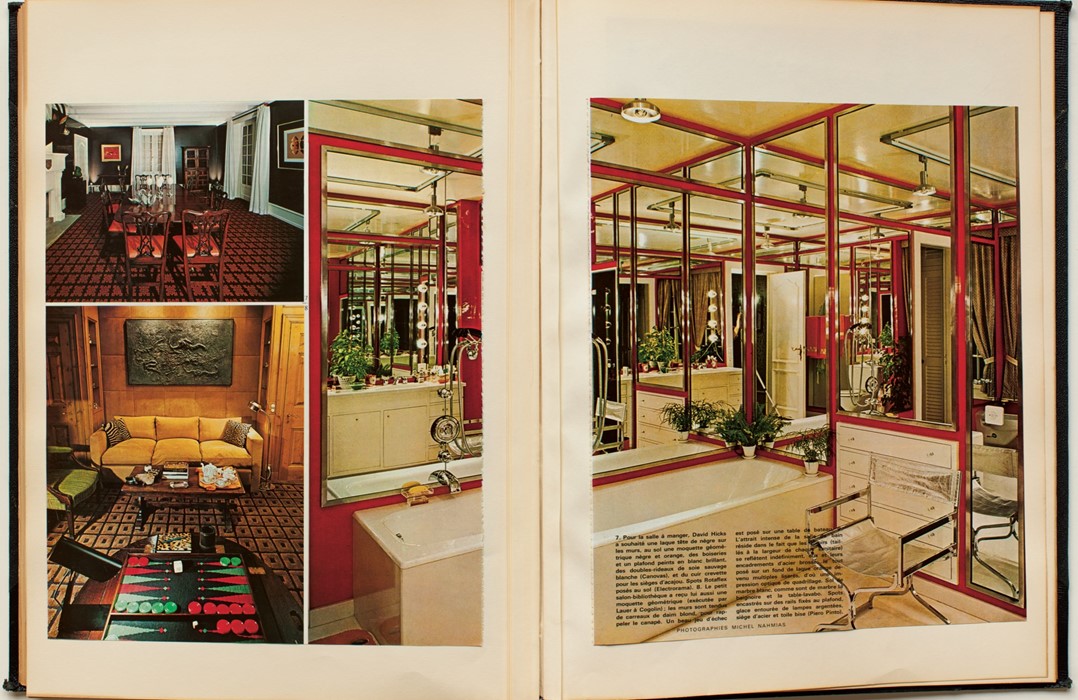
David Hicks Scrapbooks: Edited by Ashley Hicks is available from October 4, 2016.
